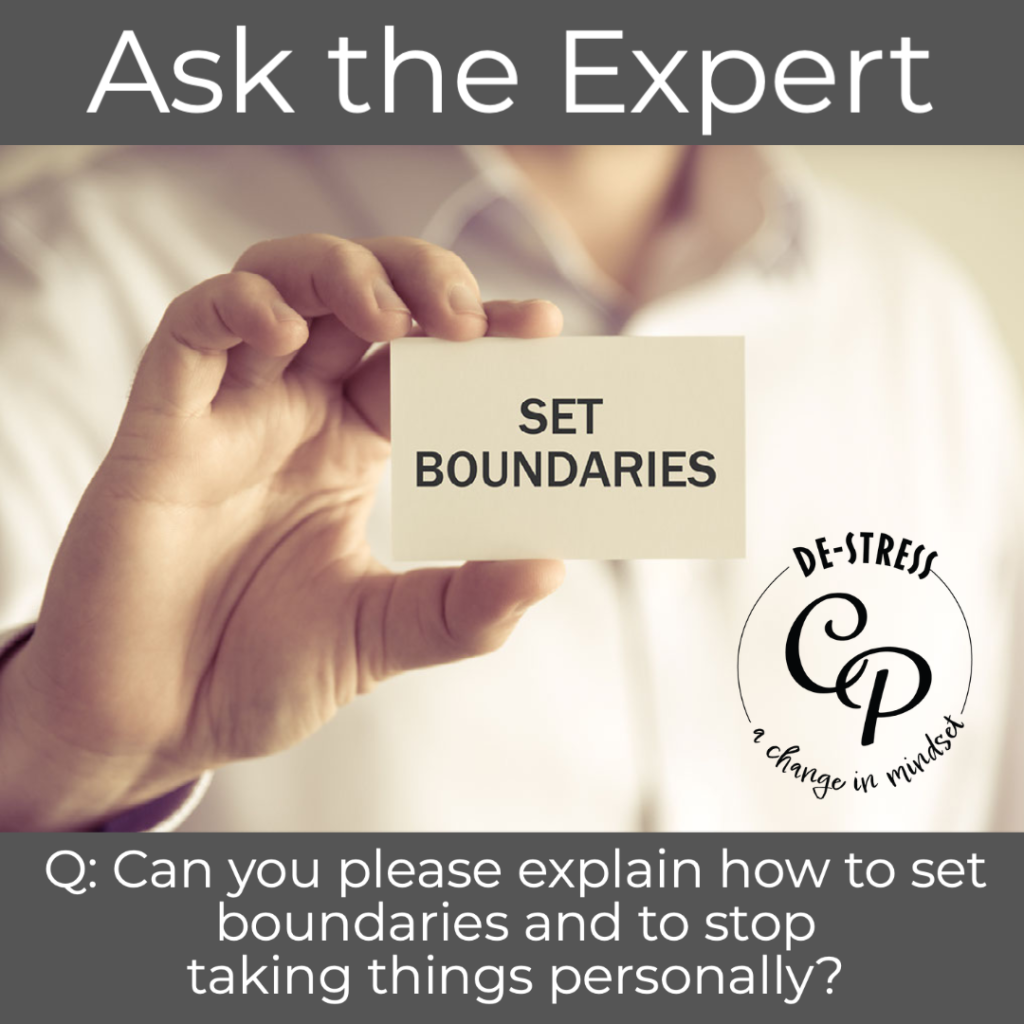
Q. In the article you wrote: ‘Set some clear boundaries about what behavior you are not willing to accept. For example, it is not ok to be yelled at, name called, intimidation, violence, hitting or threats of hitting, throwing things, etc.… I tell my clients that it is ok to feel bad it is not ok to act bad!’
Can you please explain how to set boundaries and to stop taking things personally?
A. Let’s start by defining what a boundary is; it is a personal line of treatment or behavior by others that you are not willing to accept. Typically how we determine those lines of behavior is based on our own self-respect, the higher our self-respect the higher standards we set for how people treat us. To set boundaries, you must first decide what behavior is acceptable from others.
For example, is ok, or not ok, to cheat on me, lie to me, yell at me, routinely not do chores around the house, put me down either when we are alone or with others, to be an alcoholic, gambler, etc. when deciding what your boundaries are it is important to remember that these are lines that if crossed you are willing to leave the relationship. If your partner crosses on of your lines, or comes close to crossing a line, you will have to tell them that it is unacceptable to you and you will have to leave the relationship if it happens again.
At that point your partner has the choice of which they want more, you or the offensive behavior. It is a conscious choice they make and you have to be prepared to back up your words with action. Otherwise, your word has no meaning and the person violating your values will lose even more respect for you. They will see that you don’t have the internal strength to stand behind your word and will likely treat you even worse. Should you need to leave, while painful, it will ultimately be for the best to get you out of a toxic environment.
While the goal for a peaceful existence is to never take things personally, there are some behaviors we should never ignore. See above. If you are being mistreated, you don’t have to react but you do need to have enough self-respect to get out. Our lesson in abusive or toxic situations is to love ourselves enough, have enough self-respect to get out. It is going to be a painful process but that doesn’t mean we are taking it personally; grieving is hard. When we take things personally that don’t involve mistreatment, it is showing us areas in our being that need to be healed.
The common term is button; our buttons are being pushed. While we can’t control whether people push our buttons, we can control our immediate reaction to them. We get our buttons from past wounds; they are areas that still need our attention. So if I am in a situation and my buttons are being pushed, I recognize that the feelings I am having are about the past not the present. When I separate the two things, it makes it much easier to deal with the present. So I will deal with the situation at hand calmly and then in a private time, look at where the button came from.
When we release the emotion that is associated with a button it is healed, never to be pushed again. However, that doesn’t mean we don’t have many buttons from a single incident. If we examine the feelings that arise from any situation and consistently work on releasing those emotions, over time we become much less emotionally reactive, much calmer and much more peaceful. This is how we become truly powerful. We have mastery over ourselves.
I hope this helps!
Thank you,
Cynthia Pickett, LCSW